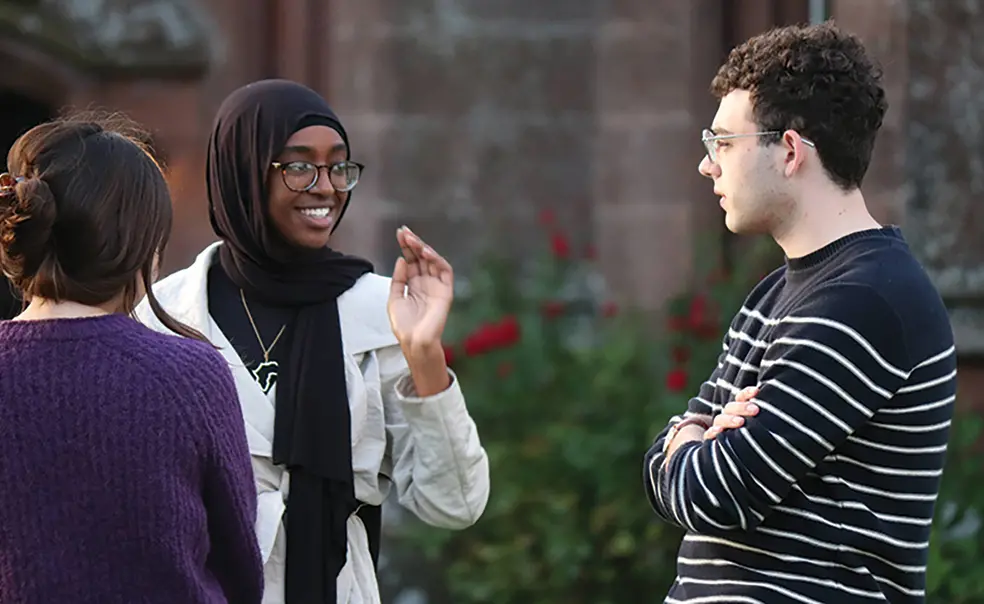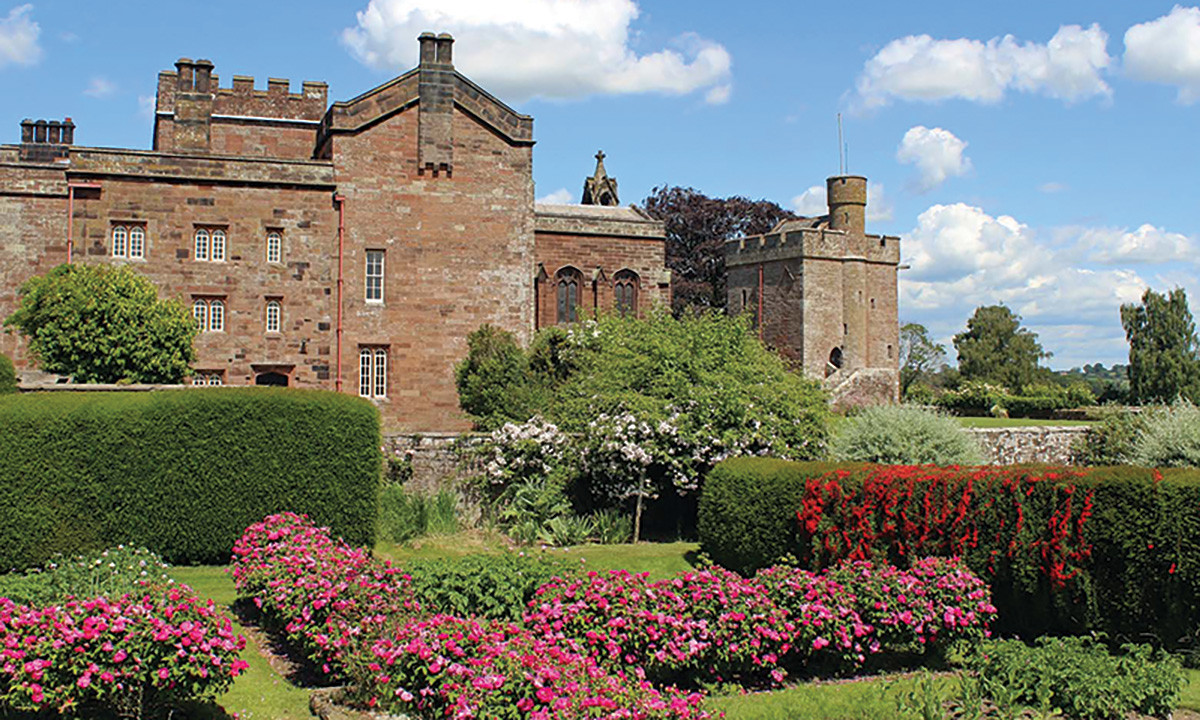At Rose Castle Training in England, Students Become Reconcilers
A few dozen Princeton students have participated in the Rose Castle Foundation’s peacebuilding trainings
On strolls through the English countryside and in front of roaring fireplaces with tea and snacks in an actual castle, a select few Princeton students learned how to become reconcilers — how to bridge contentious divides by extending patient, listening ears and appreciating the humanity of conversational partners — as part of a weeklong training with the Rose Castle Foundation, a charity that hosts peacebuilding trainings for student groups and interfaith and community leaders from across the world.
At the Rose Castle in Cumbria, England, students are introduced to, and then continuously refer back to, what foundation staff describe as Reconciliation 101, depicted through a pie chart divided into what the program identifies as the 12 habits of a reconciler — character traits such as curiosity, forgiveness, and stewardship; forming a ring outside that circle are what are dubbed the three Rs: remember the past, rehumanize the present, and reimagine the future.
Though only a few dozen undergraduates and graduates have gotten the opportunity to attend the workshops, they’ve since formed the Princeton Rose Castle Society (PRCS) with the goal of teaching others what they’ve learned and creating a positive ripple effect back on campus. Rose Castle staff have also traveled to Princeton a few times, including in January for an intensive two-day Wintersession training that was attended primarily by University staff.
Alison Boden, dean of religious life and the Chapel, met the founder of the Rose Castle Foundation, Sarah Snyder, while they were both doing work affiliated with the United Nations. She has led three groups to the castle since 2019, most recently during fall break 2023. Boden said students try to infuse the training into their everyday lives once they return — “how they are interacting with everybody from a roommate to a classmate to mom.” She hopes the students are also “paying attention to disagreements on campus and applying themselves,” from small spats between suitemates, to more serious matters, such as “between people who really are passionate about geopolitical issues.”
Boden specifically chooses a diverse group for each trip; this year’s contingent of undergraduates and graduate students had a range of ethnic backgrounds, such as Korean American, Israeli American, Palestinian, and Pakistani; religious backgrounds including Christian, Jewish, and Muslim; as well as conservative, liberal, and independent views.
Givarra Azhar Abdullah ’26, a transfer student who attended in fall 2023, found it funny that during one activity when the group was asked to agree or disagree with statements such as “justice requires forgiveness,” she tended to be on the same wavelength as someone with whom she had assumed she’d disagree. She said the best part of the trip was “gaining these friends that are from various diverse backgrounds,” some of whom she didn’t think she’d get along with.
Avi Chesler ’25, a religion major, who has been to Rose Castle several times, told PAW that being a reconciler is “about how can we exist in the same space and not want to tear each other apart, and my goal for that on campus is that we become a place for dialogue.”
Chesler sees a place for protests and demonstrations in creating change, but his “hope is that beneath that level of strong action, there’s an undercurrent of dialogue.”
Kristin Nagy ’27, who took the trip last fall, didn’t know what reconciliation meant and applied out of a desire to go to England. But the training left an impact on her. When she returned home, she realized she wanted to keep the values she had learned, but added, “It’s a lot easier said than done.”
She tries to accomplish that by “bringing that attitude of reconciliation to different conversations in small ways,” like chatting more often with people she knows she disagrees with and having “more consideration of how we balance these values of reconciliation with the things that we want in our life and the change that we want to make in the world.”
During the academic year, the students have official monthly meetings with Boden, but they’ve become close and often found themselves gathering informally more frequently, both to practice their reconciliation techniques and to check in on each other and their progress on campus. PRCS branched out and held its first Tigers Leading Tigers event in March, where members shared their training with fellow students through some of the same interactive activities they learned at the castle.
The following month, PRCS hosted an event at Coffee Club where members were on hand to discuss reconciliation and what that means on campus. Nagy said that event “was very successful” and that they talked to attendees “about what reconciliation is and [heard] their perspective on how it might work on campus.”
PRCS bid farewell to the spring semester with an end-of-year dinner, where they “talked about how we were all — in very different ways — understanding recent events through the lens of reconciliation,” according to Nagy.
Nagy told PAW that though the impact of PRCS on campus hasn’t been explicit, she believes and hopes a sense of reconciliation has begun to “permeate the campus culture as a whole.”
“The goal of reconciliation isn’t to become friends,” Nagy said, “it’s to understand each other as humans. But we’re entitled to have differences.”













No responses yet